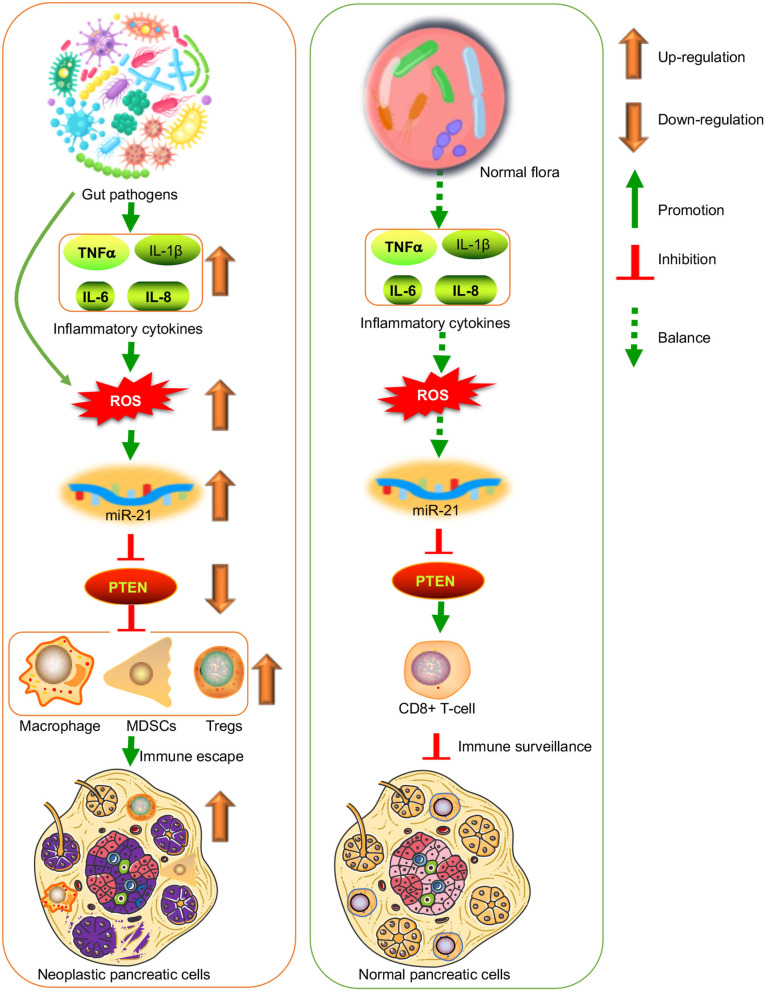Figure 1.
Oral-gut pathogens induce the immune escape of pancreatic cancer by affecting miR-21/PTEN axis via inflammatory cytokines-induced reactive oxygen species (ROS). It is suggestive that pathogen infection has long-term effects to stimulate inflammatory cytokines. Most of these cytokines can induced ROS products, which induce miR-21 expression and functions. Phosphatase and tensin homolog deleted on chromosome ten (PTEN) is a direct target of miR-21 and the upregulation of miR-21 will cause PTEN loss. Pancreatic cancer cells with PTEN downregulation are often in the immunosuppressive tumor microenvironment regulated by myeloid-derived suppressor cells (MDSCs), regulatory T cells (Tregs), and M2 macrophages. On the other hand, the healthy gut microbiota will maintain normal cancer immune surveillance possibly via CD8+ T cells.

